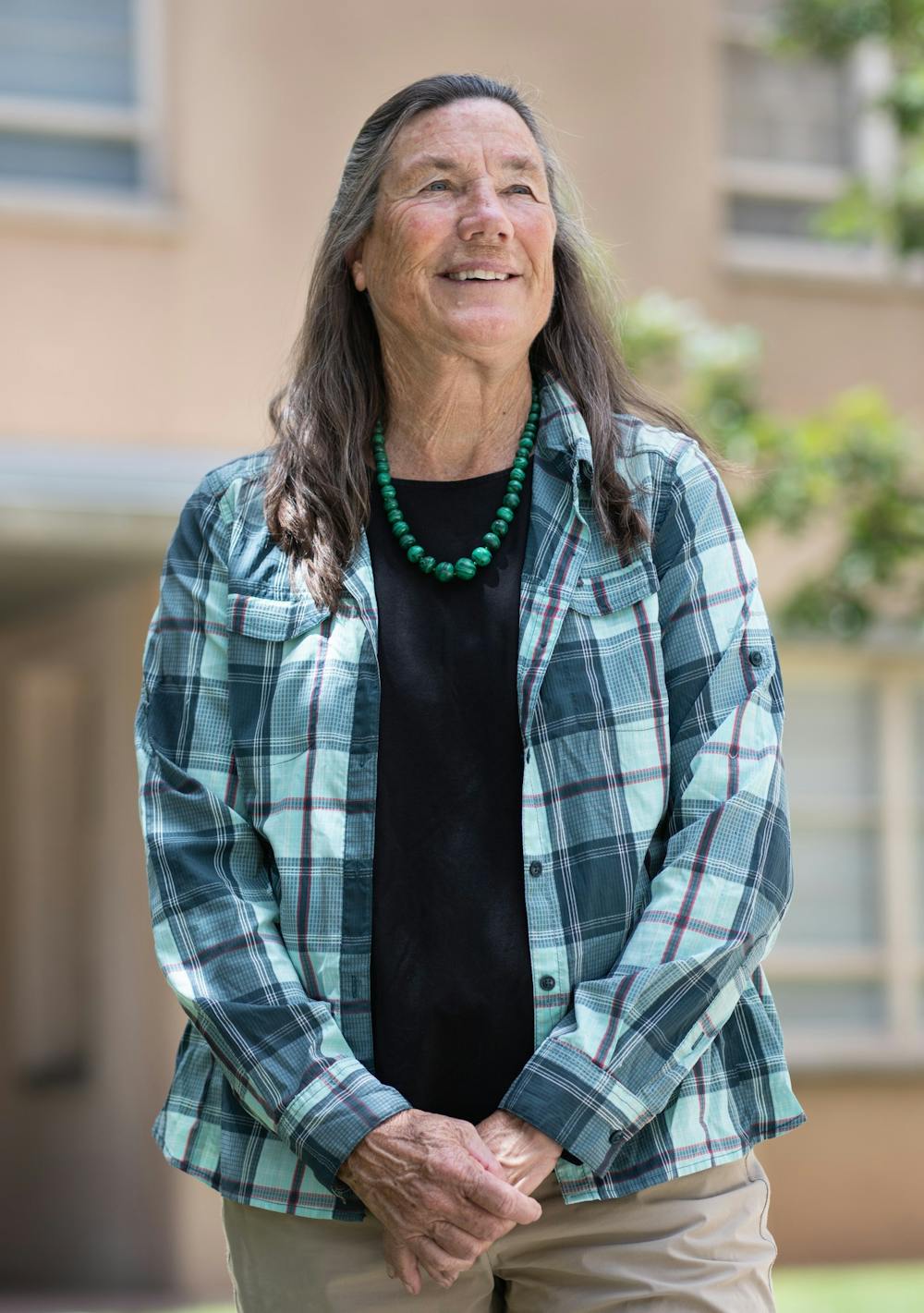University of New Mexico Professor Laura Crossey’s interest in planetary sciences dates back to her childhood memory of watching the first steps on the moon on her grandmother’s black-and-white TV in Illinois. Now, she has over 150 peer-reviewed publications and is a distinguished professor — the highest-ranking title faculty can have — of the Earth and Planetary Sciences department at UNM.
Crossey is a pioneer for women in geosciences, as she was the second woman hired on the EPS faculty in 1985 and was the first woman tenured in the department. She also served as the first female chair of the department from 2013-2016.
“I’m usually involved in communities that are dominated by men,” Crossey said. “In my own training, I didn’t have a woman faculty member until my master’s program at Washington University in St. Louis.”
Crossey noted the inequalities in opportunities and representation for women that have been prominent throughout her career, but said she never let it stop her from pursuing her passions; she is very engaged and aware of providing representation and support to minority students in a male-dominated discipline, especially as a leader in the Alliance for Minority Participation.
The honor of distinguished professor is a significant recognition of someone taking on larger roles within the University to make a more profound impact, according to fellow distinguished professor Kerry Howe.
“Being recognized internally here at the University of New Mexico as a distinguished professor helps to recognize the excellence in our program,” Crossey said.
Crossey is a part of UNM’s Sustainable Water Resources Grand Challenge team, which is composed of many esteemed scientists from the University; the team focuses on solving water problems in the arid climate of New Mexico.
“We live and die by our writing at a Research 1 University, whether you’re writing a proposal (or) peer-reviewed science paper; and, in my case, I do a lot of outreach so there’s a lot of writing and communication that’s involved in those activities,” Crossey said.
Crossey works with Howe at the Center for Water and the Environment (CWE) on water sustainability, which has allowed Crossey to conduct research in an interdisciplinary fashion. The goal of this organization is to solve water-related environmental problems, which are important due to water scarcity in the Southwest, according to Howe.
“It’s really important that (CWE) work is interdisciplinary,” Howe said. “Having faculty like Laura Crossey … really helps make this research more impactful.”
Crossey grew up in Illinois, citing the lack of interesting geological features as a driving force for pursuing her undergraduate degree at Colorado College and later establishing a successful geosciences career in New Mexico. Because of this, she feels fortunate to have been a geosciences educator in New Mexico due to its abundance of geological phenomena.
Get content from The Daily Lobo delivered to your inbox
“New Mexico has volcanoes, deep basement rocks, faults, folds, modern environments and the Rio Grande Rift, which is a worldwide-significant tectonic feature,” Crossey said.
Crossey is part of the Institute of Meteoritics at Northrop Hall, and Crossey said this extended scientific community has helped control rovers on Mars.
“Right now, there are two rovers driving around on Mars, and those rovers have instruments from the Institute,” Crossey said. “It’s like the best-kept secret on the UNM campus.”
Crossey has traveled across the world to work on springs and groundwaters in arid regions, including the southwestern U.S., the Western Desert of Egypt, the Great Artesian Basin in Australia and Tibet. Closer to home, Crossey said her work at the Grand Canyon has had a significant impact on her studies and research areas, and she has extended this work to undergraduates at UNM as well via field trips. She said these local and international research opportunities help foster understanding of Western U.S. experiences.
“It’s been really fascinating to work with cultural leaders in international communities and here in the Western U.S. as well,” Crossey said.
Crossey said she is surrounded by wonderful female faculty at the EPS department, and said at least 50% of EPS undergraduate and graduate students are women.
“That’s what I’m fortunate to do here at UNM — to be in a department that’s incredibly strong and supportive,” Crossey said.
Rebecca Hobart is a freelance reporter at the Daily Lobo. She can be contacted at culture@dailylobo.com or on Twitter @DailyLobo






